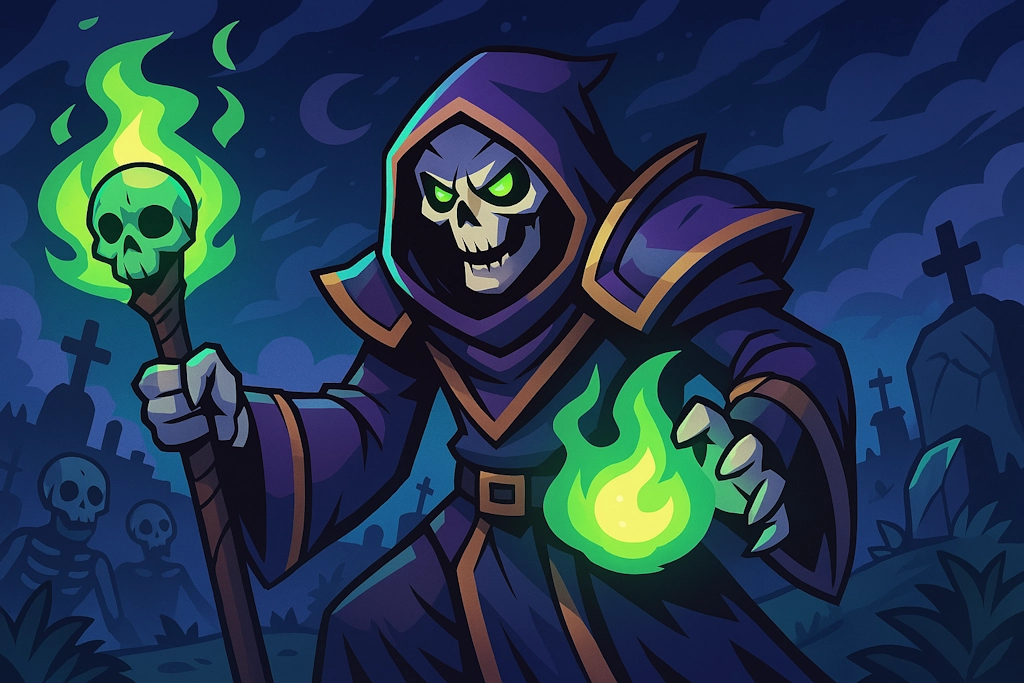♀️Necromancer Names(Female)
Generate names for dark spellcasters who commune with death and raise the undead.
Choose your style:

Necromancer Names
Generate names for dark spellcasters who commune with death and raise the undead.
Example Necromancer Names
Get inspired by these sample results
- Morrigan the Deathless
- Thanatos of the Grave
- Necra the Soul Binder
- Mortus the Dark
- Lilith the Shadow Weaver
- Karnak the Bone Lord
- Thanata of the Crypt
- Voros the Death Speaker
- Wraith the Eternal
- Shade the Undying


